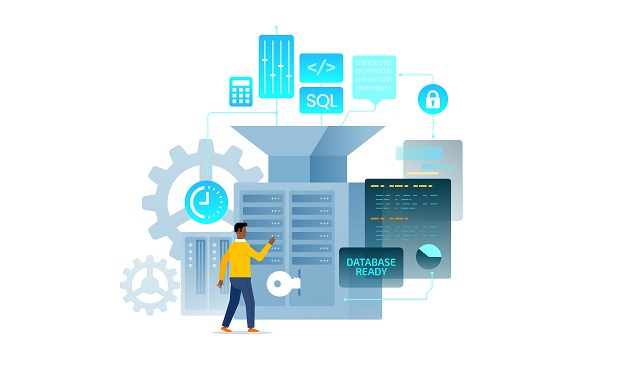Power of Oracle Database Automation
In the fast-paced world of technology, the need for efficient and streamlined database management has never been more crucial. Oracle Database Automation emerges as a beacon of innovation, offering a solution to the complexities of manual database administration. Let’s delve into the realm of Oracle Database Automation and explore how it transforms the landscape of data management.
Understanding Oracle Database Automation
- The Shift from Manual to Automated
Embracing Oracle Database Automation marks a significant shift from traditional manual database management processes. Automation enables organizations to reduce human errors, enhance consistency, and significantly accelerate task execution.
- Streamlining Routine Tasks
One of the key advantages of Oracle Database Automation lies in its ability to automate routine and repetitive tasks. From backups and patch installations to database monitoring and performance tuning, automation ensures that these tasks are executed seamlessly and without the need for constant manual intervention.
- Enhancing Efficiency and Productivity
Automation not only eliminates the risk of human error but also empowers IT teams to focus on more strategic initiatives. By automating routine tasks, teams can allocate more time and resources to innovation, problem-solving, and other high-value activities that contribute to overall business goals.
Implementing Oracle Database Automation
- Automated Database Provisioning
Oracle Database Automation simplifies the process of database provisioning, making it quicker and more efficient. Whether it’s creating new databases or scaling existing ones, automation ensures that the process is standardized and error-free.
- Performance Optimization
Automation tools can continuously monitor the performance of Oracle databases and take proactive measures to optimize them. This includes identifying and resolving performance bottlenecks, adjusting configurations, and ensuring optimal resource utilization.
- Patch Management and Upgrades
Keeping Oracle databases up-to-date with the latest patches and upgrades is critical for security and performance. Automation streamlines the patch management process, ensuring that updates are applied consistently and without disrupting the normal operation of the database.
5 Key Areas Simplified of Oracle Database Automation
- Backup Automation
Old but gold! Say goodbye to manual backups. Now, automated backups save time and headaches. But wait, can you automate restore and recovery? It’s a tricky spot that needs a human touch for debugging failed backups.
- Monitoring Automation
Enter Grid Control – your vigilant ally. Agents monitor everything, but keep an eye on them too! Without a working agent, there’s no monitoring. Grid Control, Oracle’s gift, is free without extra packs. But remember, it’s like a database without users if you skip the packs.
- Automation of General DBA Activities
Almost anything can be automated, from database startup to patching. The real question: is it worth it? Some swear by automating Oracle installations and patching, while others debate the effort. Adding data files or auto extending a file system at 99% full? Not so fast – these need a manual touch.
- Security Automation
Often overlooked, but oh-so-important! Automating database stack security is your secret weapon. Many companies grasp the security risks, but do they truly understand them? Properly set security automation can be a game-changer in unexpected situations.
- Automatic SQL Tuning
My personal favorite! Oracle takes charge of the SQL Tuning Advisor, analyzing high-load SQL statements from AWR. This gem, Automatic SQL Tuning, works its magic in default maintenance windows, giving you the option to customize. Available from 11g onwards, it’s a dream come true for Data Center DBAs.
Are you tired of promises about making DBA life easier through automation? These five areas might just turn those promises into reality!
Benefits of Oracle Database Automation
- Reduced Downtime
Automation minimizes the risk of human error during routine tasks, reducing the likelihood of downtime. This is particularly crucial in industries where continuous access to data is imperative.
- Improved Scalability
As organizations grow, the demand for scalable database solutions increases. Oracle Database Automation facilitates seamless scalability, allowing businesses to adapt to changing data requirements effortlessly.
- Enhanced Security
By automating security protocols and ensuring consistent application of security measures, Oracle Database Automation helps organizations fortify their databases against potential threats. This is especially vital in an era where data breaches are on the rise.
Conclusion
Oracle Database Automation represents a paradigm shift in how organizations manage their data infrastructure. By embracing automation, businesses can not only enhance efficiency and productivity but also fortify their databases against potential risks. As the digital landscape continues to evolve, Oracle Database Automation emerges as a key enabler for organizations seeking a competitive edge in the dynamic world of data management.







